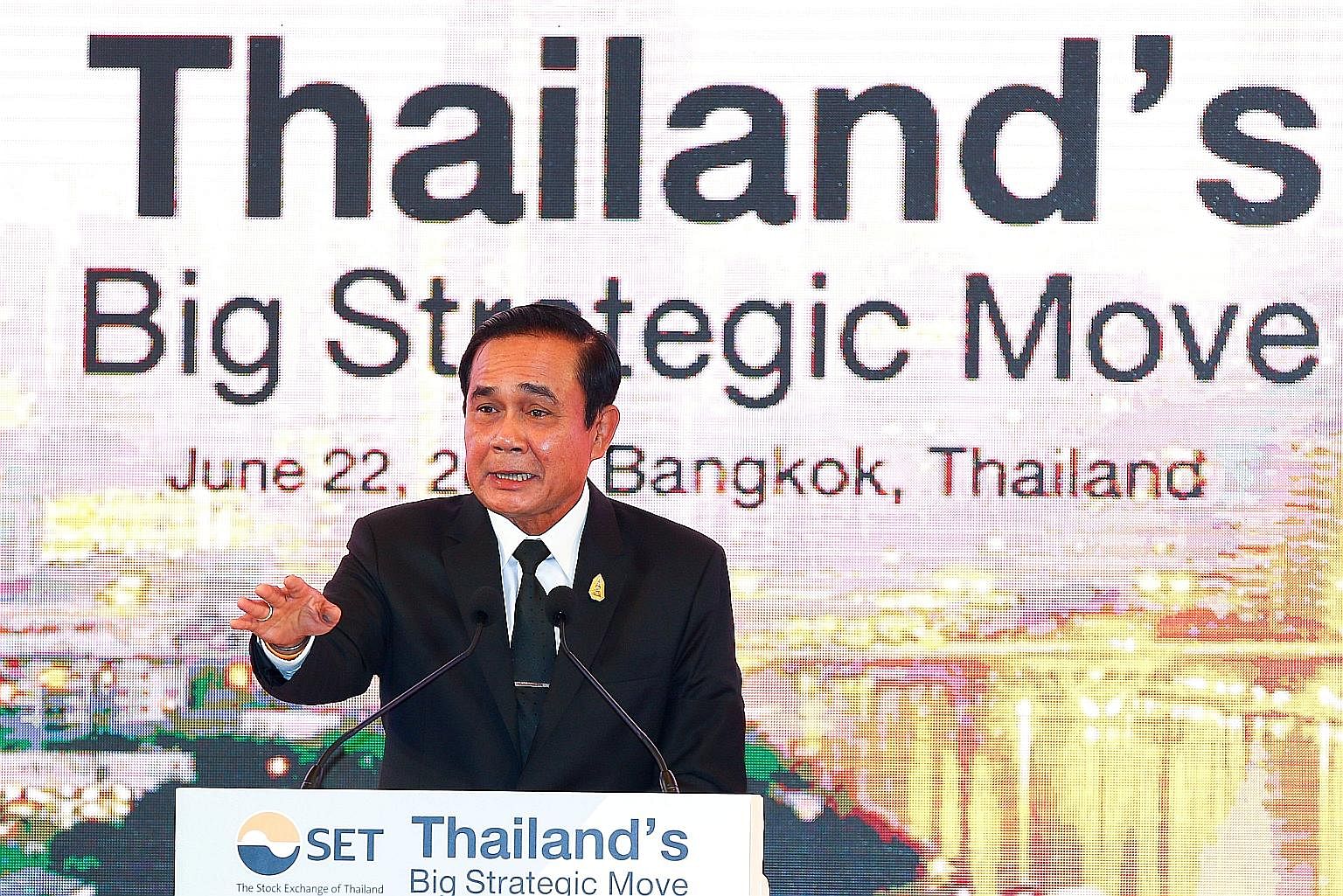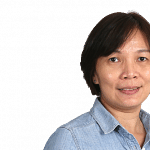Yasmin Lee Arpon Scepticism is growing in Thailand on whether a general election will be called late next year, despite repeated assurances from junta chief Prayut Chan-o-cha that the road map is "on track".
"We are already preparing the handover of duties to the new government," he told global fund managers last week. "The political transfer of power will happen when it does. It will take place as soon as possible, don't worry."
Mr Prayut has declined to set a specific date for calling elections, emphasising that it depends on the passage of four election-related laws. But this ambiguity and his recent moves have not helped remove doubts.
Late last month, he posed four politically charged questions, asking in one of them whether an election could assure good governance and how to proceed if it does not. This has raised concerns that the junta feels Thais are not ready for elections.
Adding even more confusion after a tepid response to his earlier questions, Mr Prayut put forward "50 thinking points" covering broad economic and social policy issues on June 17. He was quick to say that he did not expect answers, but only wanted Thais to ponder these points reflecting the junta's principles.
Some of the points include making Thais understand the importance of putting the country's interests before their own, and respecting majority and minority voices. They also touch on responsible use of media and social media, and ensuring that politicians serve national interests and not just those who vote for them.
The actions of Mr Prayut, who led the military coup in May 2014 that removed an elected government headed by Ms Yingluck Shinawatra, have made many wonder just what he has on his agenda.

The coup three years ago has brought stability to the political front as Bangkok's streets were cleared of violent protests between warring camps. Both sides of the political divide now want elections to be held soon and for the military to return to the barracks.
-
THE 4 QUESTIONS
-
Prime Minister Prayut Chan-o-cha raised four questions in his weekly address on May 26
1 Do you think the next election will get us a government with good governance?
2 If that is not the case, what will you do?
3 Elections are an integral part of democracy but are elections alone with no regard for the country's future and others right or wrong?
4 Do you think bad politicians should be given a chance to come back, and if conflict re-emerges, who will solve it and by what means?
Mr Prayut promised as far back as June 2014 that elections would be held by late 2015. However, the timeline has been pushed back many times because of the delay in ratifying a new Constitution and passing laws that are crucial to holding a general election.
But there is suspicion that the timeline may get pushed back further, pending approval of the organic laws and continued threats to national security.
Said Dr Thitinan Pongsudhirak, director of the Institute of Security and International Studies at the Chulalongkorn University: "It appears the incumbent military regime intends to stay in power as long as possible, as the four questions clearly discredit electoral forces."
The military has taken pains to appear receptive to the public. The provincial offices of the Damrong Tham Centre - which are under the Interior Ministry and handle public complaints - have been tasked with receiving answers to the four controversial questions and are to submit summaries every 10 days. No specific timeframe has been set on the duration.
However, only 92,000 of about 48 million eligible voters turned up from June 12 to 16. A poll by Suan Dusit Rajabhat University showed that 84 per cent of the voting population were not willing to do so because they were "too busy".
Dr Pitch Pongsawat of Chulalongkorn's political science department said this public engagement is part of a psychological warfare to legitimise the military regime."They're trying to say that this is part of a longer process in transforming Thailand under a limited regime... that democracy needs to be limited because of bad politicians."
The 2017 Constitution that King Maha Vajiralongkorn signed in April is explicit in stating that "leaders or officials of no morals, ethics and good governance" cannot take power.
Politicians, who have been prohibited from holding political gatherings since 2014, have started complaining and called the junta's promise to restore democracy a farce. During a forum at Chulalongkorn University on June 16, senior Democrat Party member Kasit Piromya said: "I cannot see how democracy can move forward. How can we make the conservative elements, the military, take a step back?"
Dr Pandit Limjittrakorn, a political science professor at Chulalongkorn University, said a return to a civilian government is critical in restoring faith in the country's democratic institutions.
"We want normalcy in politics, a return to civilian government with better human rights situation, freedom of expression and people participation in politics."
The international community has also called for a return to a democratically elected government.
Mr Alexander Feldman, president and chief executive of the US-Asean Business Council (US-ABC) whose representatives met Mr Prayut last week, said: "We believe in elections and I think they are a good thing."
He noted that US-ABC has spoken about the importance of elections since the early days of the Prayut government. "The Prime Minister himself said he's still on track for elections.We'd like to see that happen."

